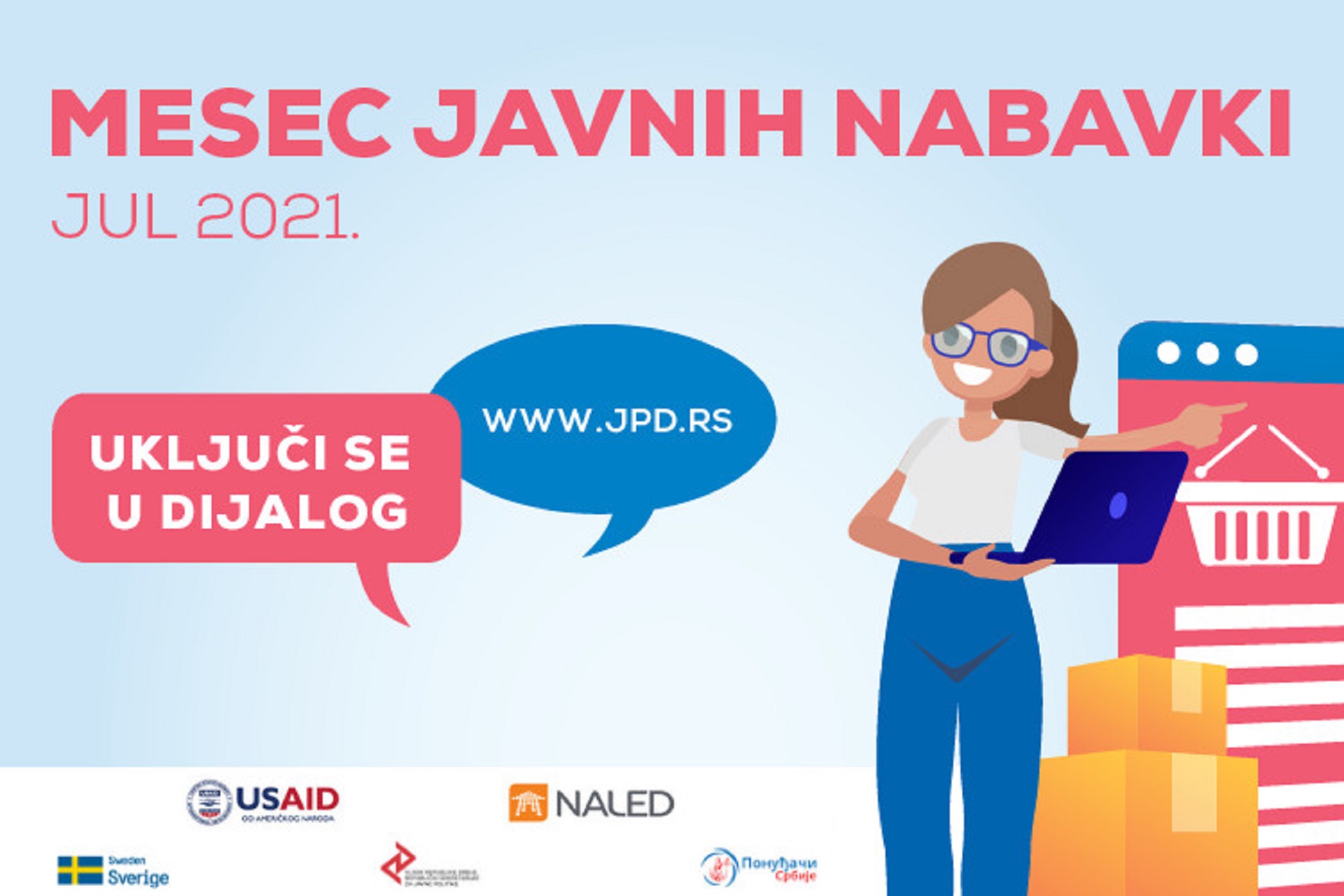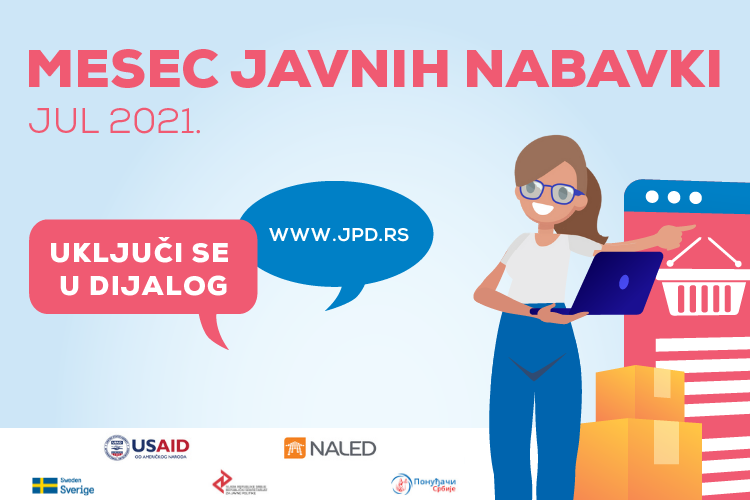Training for purchasers and bidders for a larger number of green public procurement
Even though as much as 60% of surveyed purchasers state they are familiar with environmental criteria in public procurement procedures, only a third say that they actually implement them, it is shown in the new survey on green public procurement performed by NALED among citizens, purchasers and bidders.
These and other survey results, as well as the current state and the potential for further reducing the environmental impact of public procurement process, were the topics discuussed at the second online conference titled „Green Public Procurement in Serbia – Current situation and perspective“, organized by NALED within the campaign Month of Public Procurement.
- The new Law on Public Procurement undoubtfully encourages the application of green criteria, but our survey shows that the practice has simply not been widely adopted. This is supported by the fact that the Public Procurement Office has so far not identified any green procurement in the past two years. It is therefore necessary to make these criteria mandatory, as soon as possible. At the same time, it is important for us to be aware that change does not come over night, and results can be expected only with adequate strategy. This is why we need to work together on popularizing green public procurement, both in the general public and among bidders and purchasers, through a set of training, developing guides, handbooks and devising concrete recommendations for improvement. NALED plans to offer proposals for the purchase of certain goods such as office material, chemical products, lighting etc. – said Vuk Božić, NALED's consultant.
Even though the current situation in the field of green public procurement is not satisfactory, the participants of today's webinar believe that Serbia, following best practice examples from the European Union, could gradually improve the current conditions regarding green public procurement.
- Along with the Netherlands, holding the absolute record with 100% central and 75% local green public procurement, member states that stand out by successfully resolving the matter of public procurement include Croatia and Slovenia. For example, Croatia adopted its first Action plan in 2015, organizing 60 specialized training on this topic, with more than 1000 participants, in the same year. The practice was also continued the following year, and the country developed a large number of guides and manuals as a form of professional assistance. This approach resulted in around 550 contracts with the green criteria already in 2018, and nearly 1700 last year – said Danilo Radičević, Policy Officer in NALED.
More about the problems and challenges faced by Serbian purchasers and bidders in the field of green procurement was discussed by a representative of organization Alhem, Jasminka Ranđelović.
- We need to start from the fact that not enough citizens, particularly purchasers and bidders, are aware of the importance of this topic. In this sense, trainings and other forms of expert and professional support for purchasers and bidders could be of crucial benefit, particularly for the formulation of criteria and publishing of open call documentation. On the other hand, the thing that further complicates the whole situation is the evident lack of coordination and cooperation between state authorities in charge of green procurement. This is why it is highly important for the state to get involved and contribute by, for start, identifiying the priority categories of procurement that should include the green criteria – says Ranđelović.
The campaign „Month of Public Procurement“ was launched in early July by NALED and association Bidders of Serbia within the project „Public Private Dialogue for Growth“ financed by USAID, thus enabling interested public to nominate their proposals and solutions via website jpd.rs and contribute towards improving the public procurement system in Serbia.



